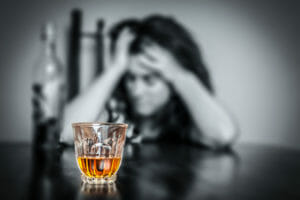Research is constantly being done on addiction: what causes it to happen, the effects it has on a person and those around them, the statistics of someone overcoming addiction, and more.

Addiction is something that is constantly plaguing our world – from drug addiction to alcohol addiction to food addiction and more.
While we know that addiction could simply be caused due to poor habits and a genetic predisposition, there are also other outside factors that can lead someone to a life of addiction – we call these external factors. And these factors can range from a variety of environmental and emotional events. One major factor that can lead to a life of addiction is trauma.
What is trauma?
Trauma can be described as an instance where a person fears for his/her safety, experiences intense levels of pain, or personally witnesses a violent or tragic event. However, traumatic events are as varied as the level of resilience that a person has to traumatic events. While children are more vulnerable to sustaining long-term damage from trauma, traumatic events do not just happen to children.

Trauma can happen to anyone – male or female, young or old, employed or unemployed, poor or wealthy. Trauma knows no gender, age or social class. And furthermore, trauma can even be repeated or ongoing. For example, childhood sexual abuse could continue on for several years and would be considered a form of trauma.
Other examples of trauma could include domestic violence, repeated bullying, car accidents, natural disasters or a death of a loved one.
Most everyone will experience some sort of trauma in their life, and a large majority of people will find healthy or acceptable ways to cope with this trauma. However, trauma can also cause people to turn to addiction.
Symptoms of Trauma
Trauma symptoms come in two different forms: emotional and psychological symptoms and physical symptoms. Here are a few examples of both:
Emotional and psychological symptoms:
- Anxiety
- Depression, feelings of hopelessness, feeling disconnected
- Confusion
- Anger, irritability, mood swings
Physical symptoms:
- Fatigue
- Insomnia
- Increased heartbeat
- Body aches and pains
- Muscle tension
It is important that you are able to recognize emotional and psychological, and physical symptoms of trauma. Just like with addiction, once you are fully submerged in the illness or disease it can be hard to even recognize that you have become a victim.
Trauma and Addiction
There is a clear connection between trauma and addiction. And those who have experienced some sort of trauma are at an even higher risk for addiction than your average person.
People struggling to overcome addiction often think that drugs and/or alcohol are a “cure” for their suffering. It can help them stop feeling the physical and/or emotional pain for a short time. However, the amount of drugs and/or alcohol needed to “cure” that pain quickly begins to increase and the person can quickly become dependent on the substance not only to overcome their pain but just to live their everyday life.
When a person is already suffering from physical or emotional pain, they are in an increased vulnerable state, which makes them at the increased risk for addiction. It is also suggested that those who have experienced trauma might lead a lifestyle that puts them at an increased risk for addiction.
The two can quickly become a deadly combination though. Especially when someone is already suffering from trauma, adding in the emotions that come with addiction can put someone at a high risk for self-harm and other dangerous activities.
Ways to Cope with Trauma
While you can successfully overcome both trauma and addiction, even if battling them at the same time, it is our hope that you never have to experience the process of overcoming both simultaneously.
There are healthy and feasible ways to deal with the trauma and correlating mental strife before addiction becomes an option and takes a strong grip of your life. If you believe you have experienced some sort of trauma in your life, whether it be something new you experienced as an adult or childhood trauma that was just never dealt with, we recommend reaching out to someone for help.
In addition to reaching out for professional help, here are some coping mechanisms you can try:
Get up and get moving
Physical activity and exercise is great for dealing with emotions. Hormones are released when you exercise and get outside just like when you participate in other pleasurable life activities. Keep in mind your physical state – we recognize that physical symptoms are a result of trauma. If you are experiencing physical symptoms, try just taking a moment to sit outside at the park and allow the sun to hit your skin.
As you participate in these physical activities, notice how your body feels and how you move. Also, pay attention to how you feel afterward. Allowing yourself to notice the positive effects this has on your mental health will help you develop the desire to continue healthy coping mechanisms such as this.
Don’t Isolate Yourself

When you experience trauma and are suffering from depression, anxiety or any other severe emotions, it can be easy to feel the strong urge to isolate yourself. However, despite the fact that this might sound like the most appealing option, instead you should try to make yourself do the opposite and actually interact with people.
It is important to have people in your circle, especially during the hard times. Try talking to close friends and family about the trauma, reconnect with old friends or even try making new ones.
Get Involved
The feeling of helping others can often in return help you, maybe even more than it is helping them. Try finding a local organization or cause that you are passionate about. Not only does this give you something to do in the downtime, but you are being productive and helping make a difference in the lives of those around you.
If you are experiencing trauma, addiction, or even both, know that you are not alone. We are here to help you.


